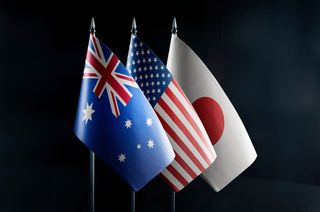When Henry Kissinger returned from Paris in October 1972, he told President Richard Nixon that they had now successfully completed a foreign policy “trifecta” – the trip to China, a SALT Agreement with the Soviet Union, and a peace treaty with Hanoi. Although Nixon and Kissinger’s foreign policy realism drew its origins in traditional European diplomacy, the trifecta was as much about the struggle for power within the United States as it was about a new international order. Professor of History at Vanderbilt University Thomas Schwartz presented his paper on the nexus between Nixon and Kissinger’s foreign policy triumphs and American domestic politics.
Past event
’You’ve got three out of three, Mr. President.’: The Nixon-Kissinger revolution in American foreign policy
When
Where
Details
8 August 2012. 12.00pm–1.30pm AEST
Other events
6 August 2012
5.30pm
-7.00pm AEST
1 August 2012
2.00pm
-6.00pm AEST
1 August 2012
12.00pm
-1.30pm AEST



